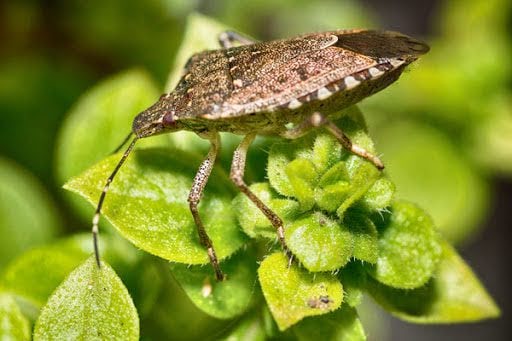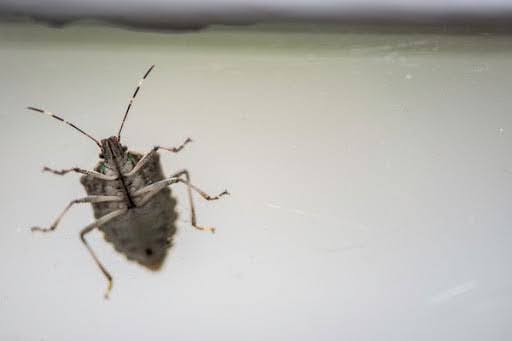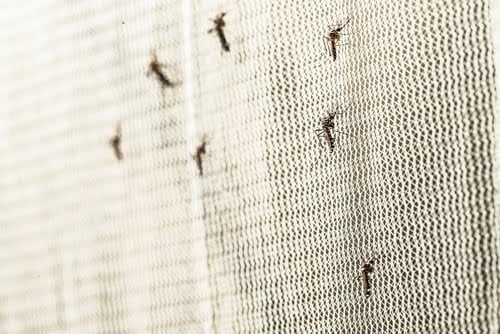Stink bugs live all over the US. They’re here to stay, and their smell is unmistakable. But, that doesn’t mean you have to share your space with them.
While we love to provide entomological education, we also understand the need for swift pest control measures when stink bugs and other pests make themselves unwelcome. That’s why Plunkett’s Pest Control strives to be at your doorstep in the time it takes to read the fun, frightening, and fragrant stink bug facts in this blog. So, call your friendly local Plunkett’s technician, sit back, and learn about these odorous intruders. We’ll be there shortly.
1. Stink bugs only came to the US by accident
Stink bugs are an invasive insect that didn’t populate in the United States naturally. They’re native to Southeast Asia and were first discovered in the US in Allenstown, Pennsylvania in 1998, after stowing away inside a fruit crate. Fortunately, pest control companies like Plunkett’s have learned how to control populations for our customers.
2. Stink bugs have traveled all over the country
After arriving state-side, stink bugs spread rapidly by stowing away in boxes and hitchhiking in cars. Stink bugs have been confirmed in 47 states and four Canadian provinces. Stink bugs reproduce quickly, so they establish themselves wherever they go. They are listed as a severe agricultural problem in 10 states.

3. Stink bugs smell like rotting vegetables
Stink bug’s odor comes from the trans-2-decenal and trans-2-octenal chemical compounds. These same two compounds are often used to add flavor or aromas to food. When combined, they produce a powerful scent that makes stink bugs smell like cilantro, rotting vegetables, or coriander. This odor can linger for hours or up to a day when sprayed on porous materials.
4. Stink bugs are a big problem for farmers
Stink bugs are typically a nuisance to most, but can be a significant pest for farmers. These bugs feed on plants that are important cash crops including corn, soybeans, tree fruits, and berries. Stink bugs leave behind distinctive bruising or “shriveling” damage on the plants they feed upon, especially tomato plants. A pest control expert can help reduce stink bug damage to your garden or crops.
5. Stink bugs communicate using vibrations
For those wondering how bugs communicate, it's all in the belly. Stink bugs send messages by moving their abdomens in a specific way to vibrate plants beneath them. They actually tend to seek out plants (like beans) that transmit their vibrations particularly effectively. These vibrational signals play an important role in stink bug mating rituals.
6. The stink bugs’ stink comes from holes in the bug’s abdomen
Stink bugs manually secrete their stink by releasing a liquid substance from pores located in their abdomens. They release this liquid when they’re frightened, threatened, or crushed. If you’re wondering why you can’t smell stink bugs, you probably haven’t sufficiently upset them. They’ll also produce their odor to attract other stink bugs during congregation season in fall.

7. Stink bugs like the smell of their stink
Stink bug smell is not toxic and, in fact, the smelly liquid that stink bugs secrete contains pheromones that attract other stink bugs. During fall, stink bugs secrete this pheromone when they find a good, warm place to congregate. The more stink bugs gather together, the more stink they can make. The more stink they make, the more stink bugs show up. The more stink bugs that show up, the more you’ll need stink bug control from Plunkett’s!
8. A single Stink bug can lay 400 eggs!
The stink bug life cycle moves quickly. A single female stink bug can lay up to 400 eggs in her short lifetime. The eggs are laid in tightly-grouped, barrel-shaped clusters of 20-30. Eggs hatch after a short incubation, and hatchlings can develop into adults in only 40 to 60 days.
9. Stink bugs don’t have “mouths”
Stink bugs have sucking “mouthparts” that they use to extract sap and juice from plant material. They don’t have conventional “mouths” and cannot bite or chew food. These sucking mouthparts are capable of piercing plants, but aren’t strong enough to hurt people. So, you won’t get bit by a stink bug.
10. Stink bugs spend winter in a state of diapause
During winter, stink bugs seek shelter and enter a state of a prolonged, hibernation-like state of inactivity called “diapause.” During diapause, the bug’s metabolism virtually stops functioning and its body temperature drops. This state allows stink bugs to survive without eating for long periods of time. Unlike true hibernation, diapause doesn’t last for the entire winter season, especially if they find a way into your home.
Bonus Fact: Plunkett’s Eliminates Stink Bugs
As interesting (and weird) as the above facts are, they’re also useful. The more you know about stink bugs, the more effectively you can keep them away. However, when you need professional help, Plunkett’s is ready. We offer seasonal treatments to prevent stink bugs from entering your property during their fall migration. We back our treatments with dedicated monitoring to ensure your stink bug problem is gone for good. To schedule your treatment, give Plunkett’s a call or schedule a service via the form below!







